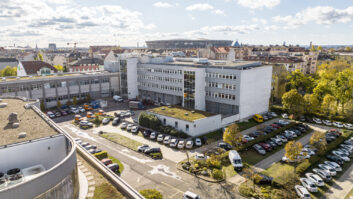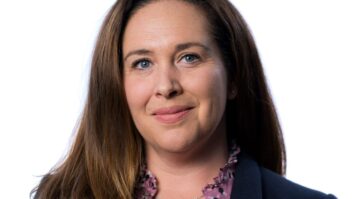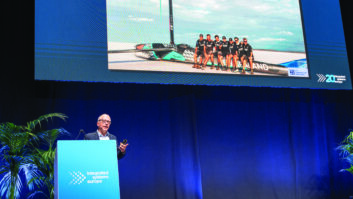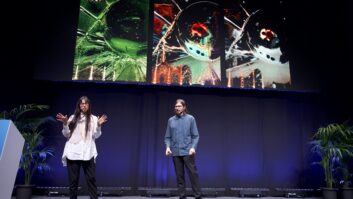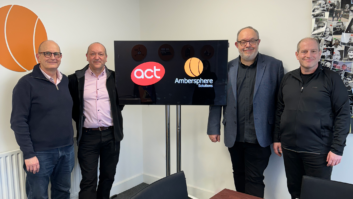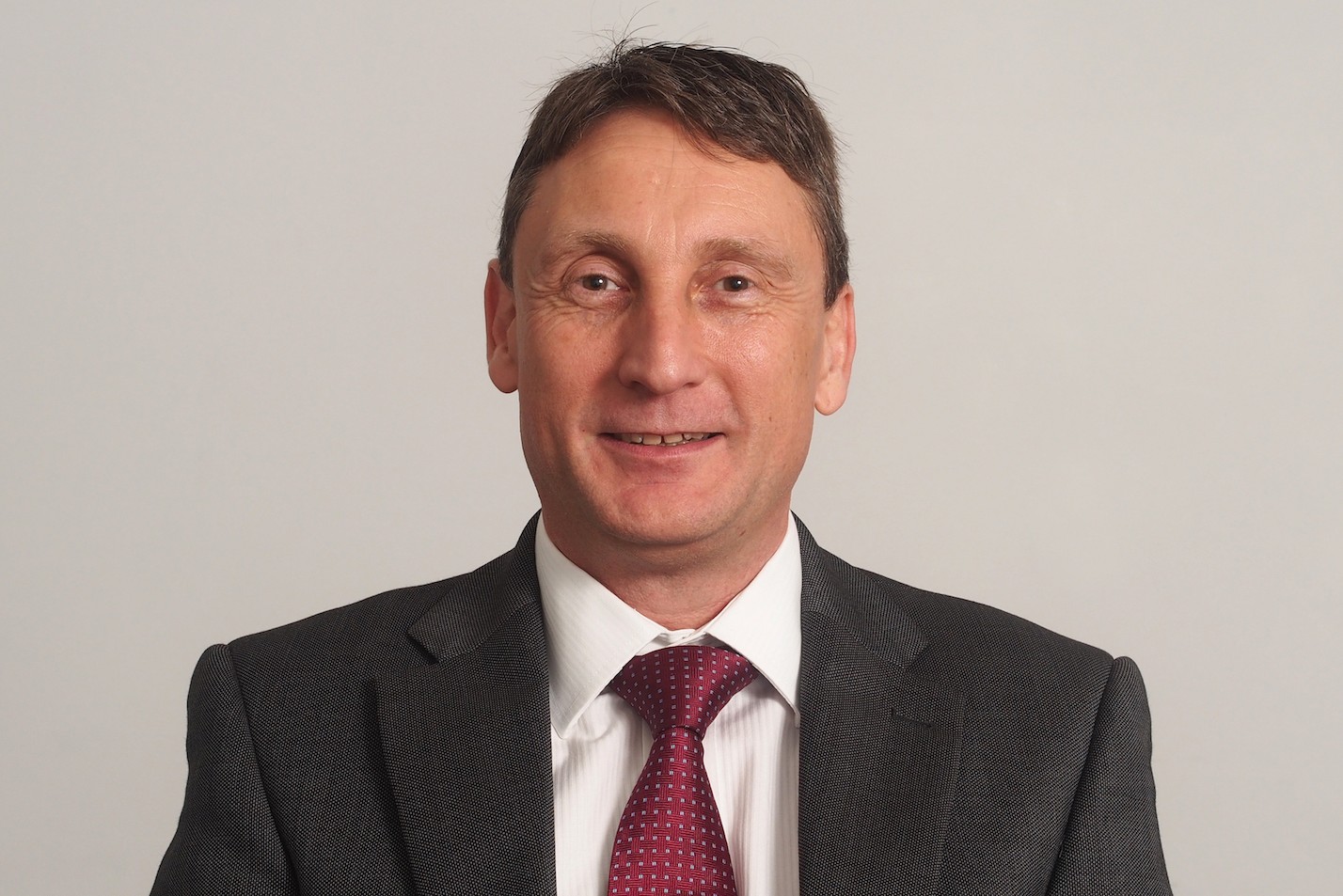
Last month, Snelling Business Systems hosted an evening at the Institution of Engineering and Technology in Savoy Place, London – where it showcase a wide-ranging AV installation that formed part of a £30 million refurbishment, and also unveiled its new branding. Paddy Baker talked to the integrator’s managing director about the company’s past history and future aspirations.
How did you get into the AV industry?
I originally trained in electronic engineering, and I was installing satellite systems when I met Roy Snelling, our founder. He offered me a job, but it wasn’t something I wanted to do. A couple of years later, I got a call from him out of the blue, asking me if I was interested in working for him. I ended up running one of his company’s workshops, which was doing electronics repairs at the time – consumer brown goods. It was obvious the bottom was falling out of that market. Meanwhile, I’d watched a friend retraining in computing. He went off to become the MD of a blue chip company working in IT – so I decided to study for a qualification in computing.
There was a director of the company who had been working in the university world – an ex-BBC outside broadcast man – to establish their TV service and early audiovisual systems. He was pressing Roy to open a business that would provide systems and services to that sector. Roy offered me the challenge, and I was happy to accept. Our founder pretty much said: “You do it, and I’ll back it”.
We had early wins at the university in Norfolk, and followed that up with contracts with the police, hospitals, other universities, colleges and so on – and the business grew from there.
So where does that take us up to?
We’re talking about the years leading up to 2009, which is when I took a management degree, and when we decided to enter the university procurement framework. We’d not been a player in that marketplace before, but we knew it would give us the ability to participate in a much wider market – and we’d already proven that we had the ability to do so, and the ability to provide the systems and solutions that were wanted.
So we bid for the SUPC [Southern Universities Purchasing Consortium] framework back in 2009. The award was made in 2010, and we were one of 93 companies bidding for nine places. Having not done that before, we were up against national players – household names – and we weren’t sure of our chances. However: not only were we awarded into the framework – we were ranked in first position.
What that meant was that, having evaluated all of our technical, ethical and financial standings, and being ranked first, it allowed any of the organisations within the framework to procure directly from us without further process. We were swamped with demand at that point – far more demand than we could handle. We didn’t try and take it all – that would have been a silly thing to do.
What a lovely position to be in!
Yes, it was. But the business was always built on our reputation for providing top-quality customer service and engineering excellence, and that’s just not something you can do if you’re going to have to subcontract that work.
Our rapid growth enabled us to recruit some good talent from the industry, including Kevin Madeja, who’s now our technical director, who had extensive, very high-profile experience in a range of companies. He liked the way we were set up, the way we delivered systems and the engineering know-how that was behind them.
What were your next important steps forward?
In 2014, we had to bid again on the university framework. This time, we bid not just on the southern one, but on the London one as well – which gave us access to not only the universities, but museums, scientific institutions and so on.
Our growth meant that we needed to move to larger premises. Because we’re part of a larger group, we were able to invest £2 million in a new headquarters facility two hours north of London, which we moved into in 2015. It’s bespoke to our requirements and provides everything we need.
Over the 16 years you’ve just described, do you think the rate of technology change has accelerated?
Back when we started, professional broadcast systems and professional AV systems were leading what’s happening in the space – but now, it’s the consumer marketplace, and that’s really disrupted the channel. Now, we’re trying to bring those consumer technologies into commercial environments in a way that works for our clients.
We certainly see challenges, though. For example, if we look at AVB as a protocol, it’s promised great things – but we’ve not yet seen the implementation on people’s networks to enable us to use those protocols, so you’ve still got to install a separate network if you want to use it – and that doesn’t deliver the cost-benefits that clients look for.
Here at Savoy Place, we’ve got a mixture of Dante and analogue audio systems, and both are required. For live events, they still need a mixing desk; they still need patch bays. You can’t do everything electronically over the network because of lags and delays. It’s all about having the right technology for the application.
At present, you’re exclusively focused on the UK. Some integrators have made alliances with international companies. Is that something you see yourselves doing?
I think that’s going to be driven by client demand. Because we’ve historically been focused on the higher education sector, it’s been less of a requirement. When you look at the corporate space, that’s not necessarily the case. The client base we’re interested in at present is the smaller corporate client rather than the larger corporate client. When we can provide what I deem to be the right level of service for those major international players, we’ll be very happy to offer it. That’s an area for the future. Whether we become part of a larger alliance remains to be seen. Certainly, I believe we could add value to that.
For someone who’s had such an interesting career – is there any advice you’d give to your younger self, based on what you know now?
I think in terms of business development, maybe we’d look at things a little differently. The company, at heart, is engineering-based and service-based. All companies need to generate a profit, of course – but that can be their primary focus or their secondary focus. Our primary focus has always been on delivering top-quality solutions. That’s a fantastic place to be – but it does mean that you have to keep an eye on the financial end of the projects, because technical things can run away with you very quickly. Looking back, perhaps a more balanced approach to projects would have been more appropriate. Having said that, I’m proud of what our projects have delivered.
Another thing would be building service revenues. Historically, universities would have engineering teams, and therefore you would have capital spend but no revenue budget. Revenue budgets are important for audiovisual businesses, particularly if you want to keep a large, high-quality engineering staff. Perhaps we should have focused on that a little earlier.
You said you’ve retrained a couple of times in your career. Presumably you see training and qualifications as important?
Absolutely. So far as training in the UK is concerned, InfoComm is our only option. They have some good programmes – but it is a US-centric organisation. One of the things that have been a bit of a frustration is that we have to ship people out to the US for some of the CTS-I training.
We certainly see InfoComm as the best provider in the market at this time, but it would be fantastic to see some of the technologies they teach, integrated into standard college courses that students are going through. We don’t see people exiting technical colleges or universities qualified to work in the audiovisual industry.
Are you able to recruit good engineers into the company? Is the AV industry a sexy enough prospect that people know about?
Do they know about it? I think not. I don’t think it’s particularly well understood. It certainly attracts a certain type of candidate. What we see is audio guys coming in and live events guys coming in or occasionally theatre technicians – but we’re not seeing people who are looking at it as a first-choice career. Typically, when we’re recruiting, we’re looking for people who already have a skill base.
Does this event at the IET in Savoy Place mark an important next step in Snelling’s development?
It does. We’re still extremely busy with the higher education market, where we understand what our clients need. However, they all tend to want their systems delivered at the same point in the year, so there’s only so many we can serve well.
Now, we’ve built our infrastructure. We’ve invested in new premises. We’ve got project managers, service engineers and technical people around the UK now. The platform we’ve built is the first step in enabling us to drive the business into another sector beyond the higher education market.
IET Savoy Place was a fantastic win for us, against the industry heavyweights and at an organisation that pretty much sets the standard for engineering excellence. It gives us some excellent opportunities to showcase what we can do – a platform from which we can take forward our message: we’re a company run very differently, with service and engineering at its heart, and with the ability to deliver large-scale, complex systems to demanding clients in demanding timeframes.
